'The game is, and always will be, for fans...'
Last year, just as newly unveiled plans for a European Super League began to crack and disintegrate, the
Football Association released a short statement.
In response to the fierce supporter protests which followed the announcement of the breakaway league, several English clubs had reconsidered and hastily withdrawn their involvement, a move welcomed by the FA.
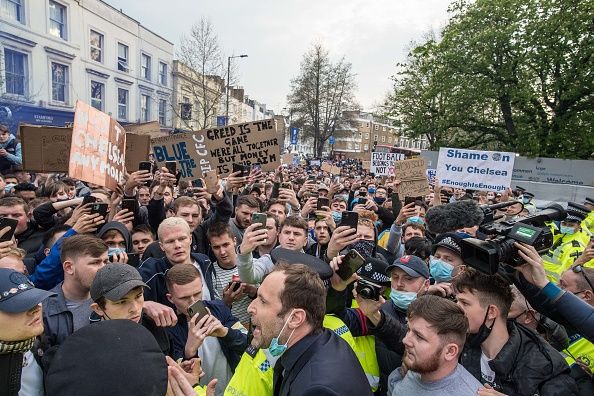
The Super League, their statement explained, would have threatened the English game as we know it, enough to inflict irreparable damage to the delicate balance of the football pyramid. The feeling of relief that the plans were unravelling so quickly was palpable, as was the sense of gratitude towards the architects of its downfall: the supporters.
"We would like to thank the fans, in particular, for their influential and unequivocal voice during this time, holding true the guiding principles of football," the statement concluded. "It is a powerful reminder that the game is, and always will be, for fans."
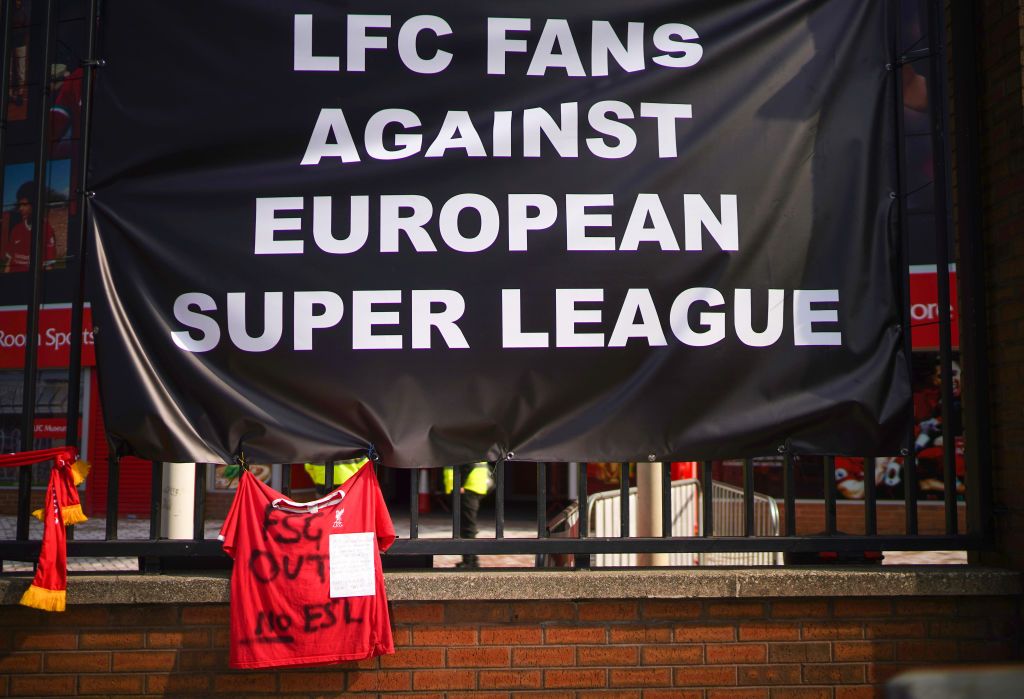
Thousands of Liverpool and City fans forced to rethink travel plans.
Not even 12 months on, many of the 60,000 fans of Liverpool and Manchester City who had planned to visit Wembley for the FA Cup semi-final on Easter weekend will appreciate the irony of those hollow words.
Thousands had intended to make the trip down to the capital by train, but have now discovered that, due to scheduled engineering work, no services from the north west will run to London on the weekend the game is due to be played.
Some reports say that Network Rail notified the FA of this as far back as last September, yet the issue has only come to light now, when it is likely too late to change anything.
Nevertheless, fans have reacted angrily.
Supporters' groups from both clubs -
backed by Labour - have united in their condemnation, urging the FA to move the game to another easier-to-reach venue.
So far, at least, nothing has changed.
It's a scenario that's enough to breathe life into the old debate about why the FA still insist on holding semi-finals at Wembley anyway. It's as abundantly clear now as it's ever been that it's illogical to carry on in this way.
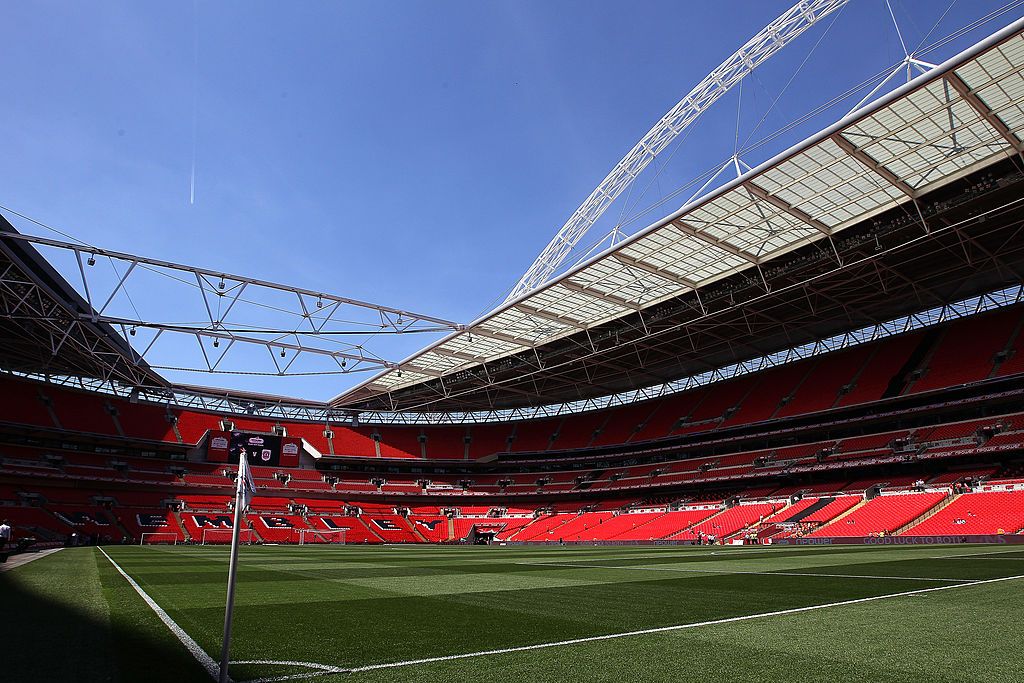
Romantically and rationally, Wembley semis don't make sense.
Purely from a football romantic's point of view, something is lost in reaching the sacred Wembley turf a round early. For a competition steeped in tradition and history, it's hard to square how the organisers are content to cheapen the grand occasion by not saving Wembley for the final itself.
Then there's the geographical element to it. Every semi-final weekend for the last 12 years has featured at least one northern team. Is it really rational to expect thousands of fans to travel nearly the length of the country for a game that isn't the competition's showpiece event?
At the very least, shouldn't a contingency venue be drawn up for occasions like this, where fans aren't forced into expensive overnight stays or to plot circuitous routes just to see their team play for a couple of hours?
At the end of the day, as we all know, it boils down to the same thing that drove the Super League to the brink of creation: money. The FA may not be guilty of the same brazen levels of greed, but they too are willing to put money over the fans they claim to value and appreciate so much.
Inconveniencing several thousand northern football supporters is merely collateral damage in the bid to milk as much as they can from those plush Club Wembley suites.
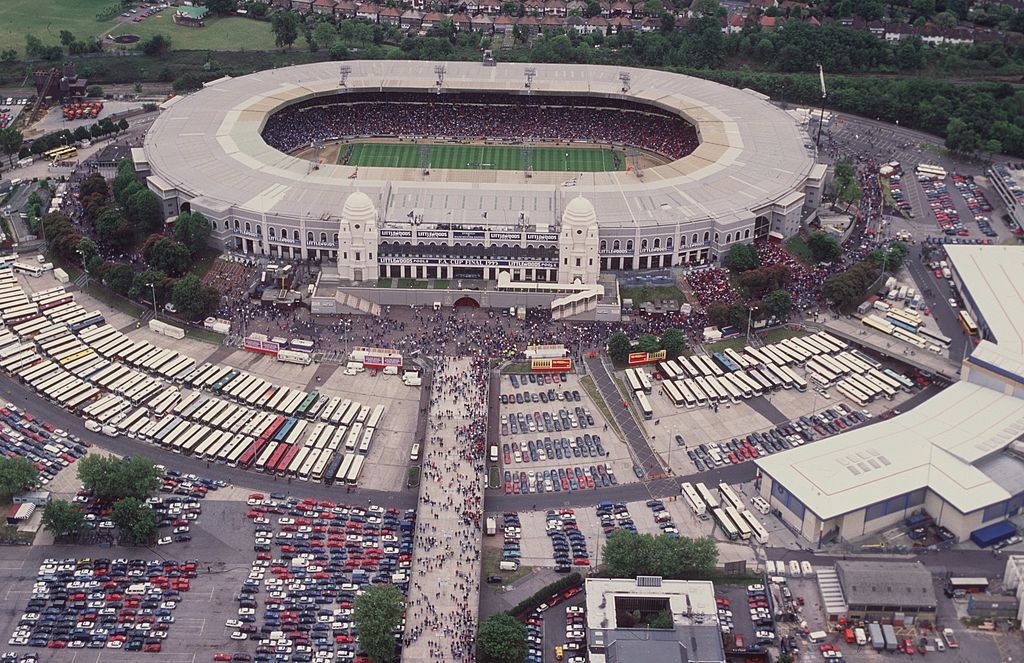
The cost of Wembley's rebuild remains at the heart of the problem
Ultimately, the uncomfortable truth that many seem to overlook these days is that the root of the problem is Wembley itself. As impressive as it is, as much as it might mean to us to see our clubs play under its arch, blowing the best part of a billion quid in levelling the old one and building Wembley 2.0 is how we got here.
That was the decision which set us on this path. Expanded use became a "financial necessity," as Nick Barron, a former spokesperson for the FA said in 2003. Nearly two decades on, it is supporters - perhaps more so those who come from hundreds of miles away - who continue to foot the bill.
Perhaps though, things will change. Maybe, just maybe, this latest farce will force the FA, the self-appointed protectors of our national game, into a rethink.
Surely there's enough money swilling around in the FA coffers now to mean semi-finals don't
need to be played Wembley. If they do, wouldn't it be wise to have Plan Bs in place for eventualities such as this?
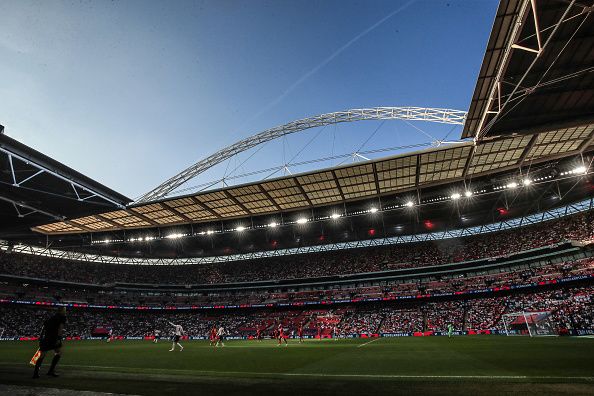
Isn't it time to look at things from the perspective of supporters? They, after all, are who this game is for.



 The Super League, their statement explained, would have threatened the English game as we know it, enough to inflict irreparable damage to the delicate balance of the football pyramid. The feeling of relief that the plans were unravelling so quickly was palpable, as was the sense of gratitude towards the architects of its downfall: the supporters.
"We would like to thank the fans, in particular, for their influential and unequivocal voice during this time, holding true the guiding principles of football," the statement concluded. "It is a powerful reminder that the game is, and always will be, for fans."
The Super League, their statement explained, would have threatened the English game as we know it, enough to inflict irreparable damage to the delicate balance of the football pyramid. The feeling of relief that the plans were unravelling so quickly was palpable, as was the sense of gratitude towards the architects of its downfall: the supporters.
"We would like to thank the fans, in particular, for their influential and unequivocal voice during this time, holding true the guiding principles of football," the statement concluded. "It is a powerful reminder that the game is, and always will be, for fans."



 Isn't it time to look at things from the perspective of supporters? They, after all, are who this game is for.
Isn't it time to look at things from the perspective of supporters? They, after all, are who this game is for.